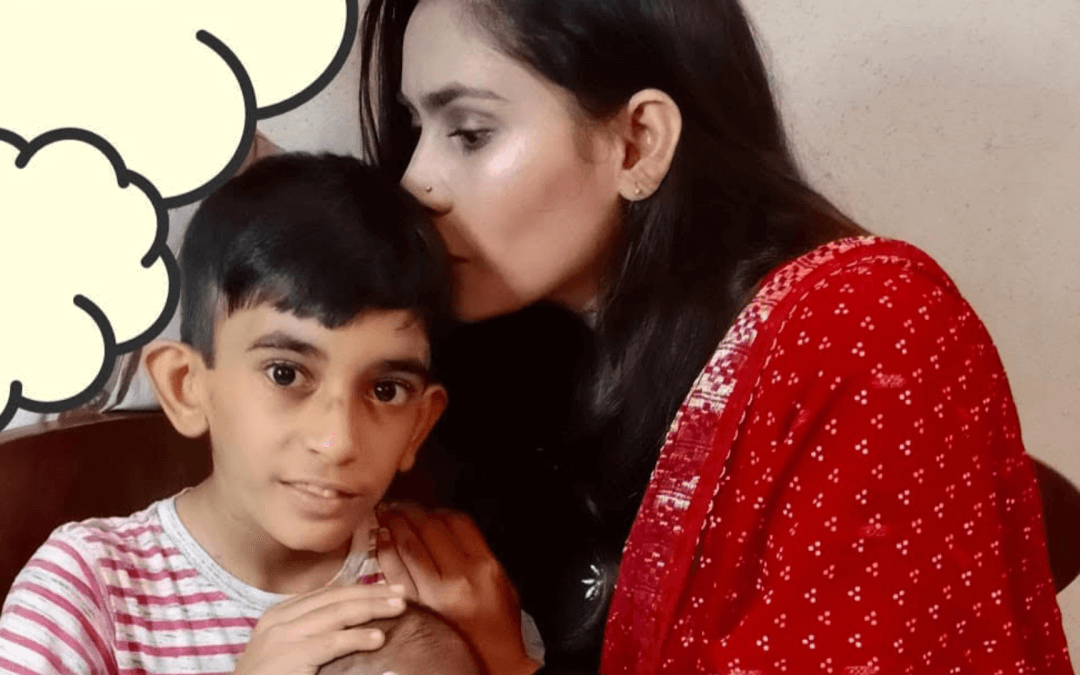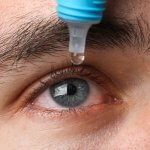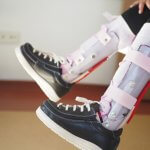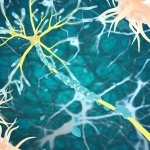Farzana Naveed, the courageous mother of Azan, shares her family’s journey with their son’s rare condition, Wiskott-Aldrich Syndrome, and how stem cell therapy brings hope for a better future.
Understanding Wiskott-Aldrich Syndrome
Wiskott-Aldrich Syndrome (WAS) covers a group of rare serious disorders affecting about 4 people in every million and usually only males. WAS affects the function of white blood cells, and children born with this condition have low or poor immunity and a significant reduction in the size and number of platelets (microthrombocytopenia). WAS causes those affected to experience excessive bleeding episodes, recurrent infections and eczema. Patients also face a high risk of autoimmunity, lymphoma, and leukaemia.
WAS is caused by mutations or defects in the WAS gene that gives the instruction to make the Wiskott‐Aldrich Syndrome Protein (WASp). The WAS gene defect and the severity of the condition varies widely between individuals. Severe cases may be present soon after birth or develop in the first year of life.
WAS is an inherited condition meaning it is passed down through the generations. It follows what is called an X‐linked recessive pattern of inheritance, with the transfer of a defective gene on one of the two X chromosomes of a mother to a son. This means that for every boy that is conceived to a carrier mother, there is a 50/50 chance that they will have WAS.
Discovering Azan’s Condition
Azan started displaying symptoms when he was just 7 months old, experiencing bloody stools, bloody bumps all over his body, frequent infections, and nasal bleeding episodes. His lab work disclosed low platelet counts, leading the doctors to initially diagnose him with Immune thrombocytopenia (ITP), a type of platelet disorder.
However, 3 years later, with no improvement in Azan’s platelet count or response to medications for ITP, his Haematologist, Dr Sadaf Altaf recommended genetic testing. Due to the lack of resources in Pakistan, his blood samples were sent to the U.S., where the results revealed Azan’s Wiskott-Aldrich Syndrome diagnosis.
Daily Challenges of Life with a Child with a Rare Disease
Farzana shares the struggles that come with raising a child affected by a rare disease like Azan’s. Constant uncertainty surrounds their lives, making it tough to maintain a normal routine or work.
“We can’t manage our routine, can’t work because we don’t know when we have to rush to the hospital in case of emergency, even being at home is challenging as Azan can’t go to school, so we are taking care of his studies at home and looking after him 24/7. Now he is growing up and aware that he is not able to go to school or live a healthy life like other kids, we need to give him more emotional support as well”.
“Initially, Azan was treated with platelet transfusions for excessive bleeding, but this is no longer possible as he has developed anaphylaxis from the platelet transfusions.”
Witnessing their child suffering from bleeding episodes and countless hospital visits has taken a toll on the family, both physically and mentally.
The Potential of Stem Cell Therapy
When Azan was diagnosed, the doctor suggested a bone marrow transplant (BMT) as it is the only permanent cure for WAS and is the treatment of choice for those with severe clinical symptoms. If BMT is successful, the blood cell and immune defects in WAS are corrected and eczema resolves. It is not without risk, but significant advances in the last two decades have improved its success rate. Finding a suitable bone marrow transplant donor became essential for Azan’s treatment.
Tragically, no suitable donor match was found for Azan. As his condition deteriorated, he received many transfusions and doctors advised that the chances of a positive outcome if he were to find a successful match were growing more uncertain.
Farzana, finding herself at a loss, turned to the internet in search of a lifeline for Azan and found a beacon of hope: the Wiskott-Aldrich Foundation.
Founded by Dr. Sumathi Lyengar, a paediatrician and mother to a child with Wiskott-Aldrich Syndrome, this U.S. non-profit organization is dedicated to supporting families just like Farzana’s.
It was through the foundation that Fazana learned about several clinical trials in progress in the U.S. and Europe utilizing cord blood stem cells. Findings showed that using cord blood stem cells in transplant procedures for Wiskott-Aldrich Syndrome was working with good success.
Cord blood stem cell transplantation can be a viable option if a perfect bone marrow match is unavailable. Five‐year survival rates for children transplanted under the age of 5 years with a perfect sibling match approaches 90%. This therapy presented significant hope for Azan.
Moving Forward with Hope: Azan’s Journey to a Transplant
In 2022, Farzana received the incredible news that she was expecting a baby. This blessing gave her family the opportunity to bank cord blood from a sibling to potentially use for a transplant for her beloved son, Azan. However, cord blood banking was not available in Pakistan, and the family couldn’t afford to store it outside of the country.
That’s when Dr. Lyengar stepped in and reached out to Cells4Life, a renowned cord blood bank based in the UK. Recognizing the importance of Azan’s situation, Cells4Life agreed to help the family by covering the costs for the shipping, processing, testing, and storage of the cord blood. This partnership offered a glimmer of hope for Azan’s much-needed transplant.
On May 22, 2023, Farzana gave birth to a baby girl, and the cord blood from Azan’s sister was successfully collected and stored. Currently, it is undergoing human leukocyte antigen (HLA) testing to determine if it is a suitable match for Azan.
Despite the potential risks due to past transfusions, Farzana remains hopeful that this groundbreaking procedure will be life-changing for Azan.
“As Azan had a lot of transfusions in the past, his transplant could be risky, but at least we can hope that a stem cell transplant would be less risky and have a high success ratio.”
“I want him to live a healthy and happy life, going to school like a normal kid who can play any kind of sport. There must be no restrictions on eating ice cream.”
Farzana’s story is one of incredible resilience and unwavering determination in trying to find the best treatment option for her beloved son.
Cells4Life is passionate about raising awareness regarding the transformative potential of stem cell therapy for patients like Azan and their families. Through innovative research and advanced techniques, we are dedicated to creating a brighter future for families affected by rare conditions like Wiskott-Aldrich Syndrome.
FIND OUT MORE, REQUEST YOUR WELCOME PACK TODAY
All you need to know to make an informed decision.
Provide your contact details to request:
– Complete Welcome Pack and Parent’s Guide
– Information via email
– Contact from our specialist advisors








